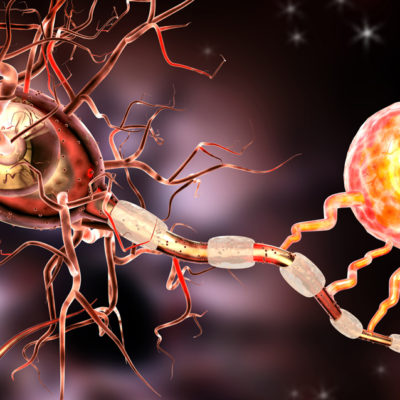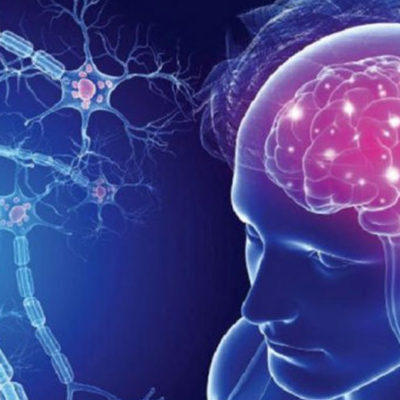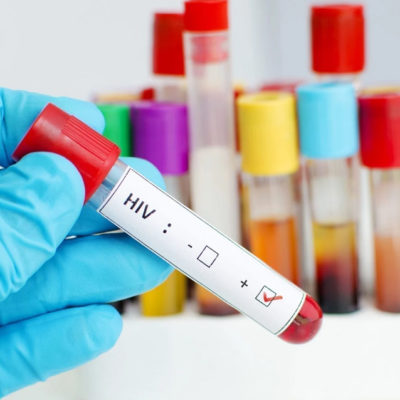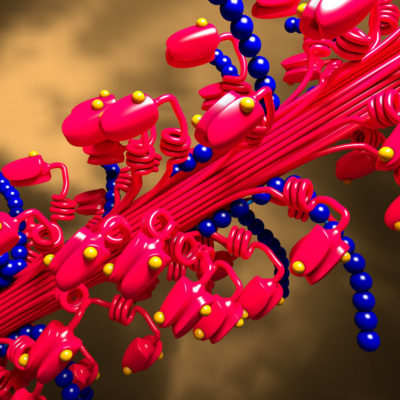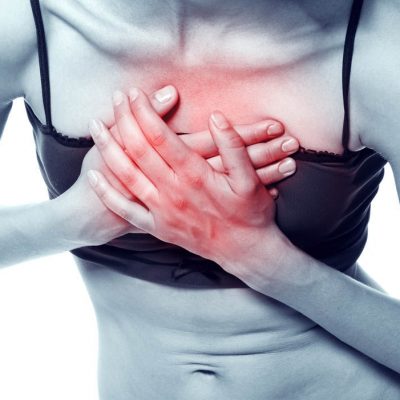An increasing number of people are developing type 2 diabetes and obesity. These are highly complex and multifaceted diseases. In order to treat them sustainably, new approaches to therapy are needed. Clinical studies on humans have shown that heavily overweight individuals produce less Kallistatin.Kallistatin is a protein that has various effects in the body. Among other … [Read more...]
Healthy Diets Increase The Economic and Physical Feasibility of 1.5°C
A global shift to a healthier, more sustainable diet could be a huge lever to limit global warming to 1.5°C, researchers at the Potsdam Institute for Climate Impact Research (PIK) find. The resulting reduction of greenhouse gas emissions would increase the available carbon budget compatible with limiting global warming to 1.5°C, and allow to achieve the same climate outcome … [Read more...]
Main Regulator for the Body’s ‘Oven’ Discovered
Obesity is defined as a pathological increase in white fat, and has become a major problem worldwide, with a greatly increased risk of cardiovascular diseases such as heart attack and stroke. "Exercise and dieting are not enough to effectively and permanently shed the pounds," says corresponding author Prof. Alexander Pfeifer, Director of the Institute of Pharmacology and … [Read more...]
Main Regulator for the Body`s ‘oven’ Discovered
Brown fat cells convert energy into heat -- a key to eliminating unwanted fat deposits. In addition, they also protect against cardiovascular diseases. Researchers from the University Hospital Bonn (UKB) and the Transdisciplinary Research Area "Life & Health" at the University of Bonn have now identified the protein EPAC1 as a new pharmacological target to increase brown … [Read more...]
Study Unveils a Role of Mitochondria in Dietary Fat Processing
The maintenance of a balanced lipid homeostasis is critical for our health. While consumption of excessive amounts of fatty foods contributes to metabolic diseases such as obesity and atherosclerosis, fat is an indispensable component of our diet. Digested lipids supply the body with essential building blocks and facilitate the absorption of important vitamins. In a new study … [Read more...]
Fat Cells Help Repair Damaged Nerves
Damage to the body's peripheral nerves can cause pain and movement disorders. Researchers at the Leipzig University have recently investigated how damaged nerves can regenerate better. They found that fat tissue strongly supports the Schwann cells needed for repair during the healing process. The results were published in the journal Cell Metabolism. Our bodies are … [Read more...]
Are Healthy Foods Automatically Sustainable, Too?
Many people are keen on making healthy as well as sustainable food choices, and they often intuitively equate "healthy" with being "sustainable." A study by researchers at the University of Konstanz, the Johannes Kepler University Linz and the Hamburg University of Applied Sciences is focusing on whether or not this perception corresponds to reality. It has just been published … [Read more...]
Highly Responsive Immune Cells Seem to be Beneficial For The Brain
Findings by researchers from Germany support the view that hyperactive immune cells in the brain can have a protective effect in the course of neurodegenerative diseases. Experts from Deutsches Zentrum für Neurodegenerative Erkrankungen (DZNE), Ludwig-Maximilians-Universität München (LMU) and LMU Klinikum München report on this in the scientific magazine The EMBO Journal. The … [Read more...]
HIV Infection: Better Understanding The Reservoir of Virus in the Body
LMU researchers have developed a method that allows resting human immune cells to be genetically analyzed in detail for the first time. CD4+ T cells are important parts of the immune system and play a key role in defending the body against pathogens. As they possess a great variety of defense mechanisms against HIV in their resting state, they are infected only very rarely … [Read more...]
People With High-Risk Prediabetes Benefit From Intensive lifestyle Intervention
Intensive lifestyle intervention with plenty of exercise helps people with prediabetes improve their blood glucose levels over a period of years and thus delay or even prevent type 2 diabetes. In particular, individuals with prediabetes at highest risk benefited from intensive lifestyle intervention. This is shown by the evaluation of the Prediabetes Lifestyle Intervention … [Read more...]
Blood iron levels could be key to slowing aging, gene study shows
Genes linked to ageing that could help explain why some people age at different rates to others have been identified by scientists. The international study using genetic data from more than a million people suggests that maintaining healthy levels of iron in the blood could be a key to ageing better and living longer. The findings could accelerate the development of drugs … [Read more...]
Biomedical Researchers get Closer to Why Eczema Happens
A new study from researchers at Binghamton University, State University of New York may help to peel back the layers of unhealthy skin -- at least metaphorically speaking -- and get closer to a cure. An estimated 35 million Americans suffer from eczema, a chronic skin condition also known as atopic dermatitis. Worldwide, 2 to 5% of adults and about 15% of children suffer … [Read more...]
Fantastic muscle proteins and Where to find Them
Researchers at the Max Delbrück Center for Molecular Medicine in the Helmholtz Association (MDC) developed a mouse model that enables them to look inside a working muscle and identify the proteins that allow the sarcomere to contract, relax, communicate its energy needs, and adapt to exercise. Specifically, they were able to map proteins in defined subregions of the sarcomere, … [Read more...]
Heart attack: Substitute muscle thanks to stem cells
Myocardial infarction -- commonly known as a heart attack -- is still one of the main causes of death. According to the Federal Statistical Office, more than 49,00 people died of its consequences. And yet the mortality after heart attack has greatly decreased over the past decades: As compared to the early 1990s, it has more than halved until 2015, according to the German … [Read more...]
Natural Metabolite can Suppress Inflammation
An international group of scientists from US, Canada, Germany and Russia has revealed a substance produced in humans that can suppress the pro-inflammatory activity of macrophages -- specific cells of immune system. The substance known as itaconate is released in large quantities by macrophages themselves, but until now its role remained poorly studied. Now scientists have … [Read more...]
Breast cancer risk increased in young women after treatment for Hodgkin’s disease: A German Study
Girls treated for Hodgkin's disease during adolescence acquire a considerable risk of developing breast cancer, as shown by an observational study published in the current issue of Deutsches Ärzteblatt International. The study, which was carried out by Günther Schellong and his colleagues in the German Working Group on the Long-Term Sequelae of Hodgkin's Disease, has an … [Read more...]
Tracking down the secret of aging: A German Study
Researchers have found differences between normal and pathologic peptidomic changes that may lead to an improved understanding of molecular mechanisms underlying aging. Proteome analysis in combination with therapy may influence pathologic aging. For the first time, researchers succeeded in showing differences between normal and pathologic aging on a molecular level. In one … [Read more...]
Lifestyle change could reduce risk of Alzheimer’s: A German Study
Changes in lifestyle could reduce the risk of developing Alzheimer's disease. That was the conclusion of a study conducted by researchers of Heidelberg University's Network Aging Research (NAR), who examined the data from two independent epidemiological studies. Carriers of the ApoE4 genetic risk factor for Alzheimer's may be able to reduce their increased risk of cognitive … [Read more...]
Diet affect the progression of multiple sclerosis: A German Study
Dietary fatty acids affect the development and progression of autoimmune chronic-inflammatory diseases such as multiple sclerosis. In a collaborative study between the Departments of Neurology at the Ruhr-Universität Bochum (St. Josef-Hospital) and the Friedrich Alexander Universtiy Erlangen, researchers now found that long-chain fatty acids promote the development and … [Read more...]
Multihormone reverses metabolic damage of high calorie diet: A German Study
A single molecule, which acts equally on the receptors of the metabolic hormones glucagon and glucagon-like peptide-1 (GLP-1) improves body weight and diabetes through restored function of the anti-obesity hormone leptin. This was discovered by an international team comprising scientists from the Helmholtz Center Munich, Germany, Indiana University and the San Diego-based … [Read more...]
Women: A longer break from work leads to less interest in a career: A German Study
Family policy influences not only families’ economic behaviour, but also sends out clear normative signals on which people base their individual life plans: The longer a mother takes a break from work after the birth of a child, the more she loses interest in her own career: Professor Markus Gangl and Dr. Andrea Ziefle, sociologists at Goethe University in Frankfurt, are now … [Read more...]
Cocoa flavanols could help maintain cardiovascular health: A German Study
Two recently published studies in the journals Age and the British Journal of Nutrition (BJN) demonstrate that consuming cocoa flavanols improves cardiovascular function and lessens the burden on the heart that comes with the aging and stiffening of arteries. The studies also provide novel data to indicate that intake of cocoa flavanols reduces the risk of developing … [Read more...]
Pediatric allergology: Fresh milk keeps infections at bay: A German Study
A study by researchers of Ludwig-Maximilians-Universitaet (LMU) in Munich shows that infants fed on fresh rather than UHT cow's milk are less prone to infection. The authors recommend the use of alternative processing methods to preserve the protectants found in the natural product. A pan-European study, led by Professor Erika von Mutius, Professor of Pediatric Allergology … [Read more...]
A new treatment of Blood clots that form in arteries: A German Study
Blood clots often form when lipid-rich plaques on the inner surface of arteries rupture and platelets aggregate at the site of injury. Cardiologists from Ludwig-Maximilians-Universitaet (LMU) in Munich have now compared the effects of two new platelet aggregation inhibitors. Blood clots that form in arteries -- so-called arterial thrombosis -are among the most common causes … [Read more...]
Geranium extracts can stop HIV: A German Study
Extracts of the geranium plant Pelargonium sidoides inactivate human immunodeficiency virus type 1 (HIV-1) and prevent the virus from invading human cells. In the current issue of "PLOS ONE," scientists from the Helmholtz Zentrum München report that these extracts represent a potential new class of anti-HIV-1 agents for the treatment of AIDS. Scientists from the Helmholtz … [Read more...]
Diagnosis and treatment are inadequate for Severe asthma: A German Study
Asthma is a common disease. It has increased significantly over the last hundred years and now affects between 1 in 10 and 1 in 20 people in Europe. In most sufferers asthma can be treated successfully, and as a result emergency room consultation and hospitalization are rarely needed. However, in a minority of patients asthma can be only partially controlled, or even prove … [Read more...]
Adenosine in Ambrosia pollen increases allergic response: A German Study
Ragweed (Ambrosia artemisiifolia) - an otherwise unremarkable plant - produces pollen that can trigger strong allergic reactions such as asthma even in very small quantities. Scientists from Technische Universität München (TUM) and Helmholtz Zentrum München have now published a joint study showing that the substance previously identified as the major allergen only induces such … [Read more...]
Scientists map surface of immune cells: A German Study
The immune system must constantly adapt to its environment in order to protect a body effectively. The so-called T cells are an important example in this regard. One of their functions is to form the immune system's "memory." Researchers at the Helmholtz Zentrum München and the Technische Universität München recently examined the surface of precursors of these T cells and … [Read more...]
Scientists finds cause of allergic asthma: A German Study
Discovery improves understanding of the cause of allergic asthma and may serve as an early diagnostic marker. When the mucosal surfaces in the lungs of healthy people come into contact with allergenic substances, so-called regulatory T cells also known as Treg cells, are activated. These are capable of actively preventing the development of allergies. However, if these … [Read more...]
Evidence of the influence of emotion awareness on the development of attention in preschool children: A German Study
Young children, who possess a good understanding of their own emotions and of those of their fellow human beings early on, suffer fewer attention problems than their peers with a lower emotional understanding. Evidence of this phenomenon was found through a study of Leuphana University of Lüneburg and George Mason University, USA, under the auspices of Prof. Dr. Maria von … [Read more...]





